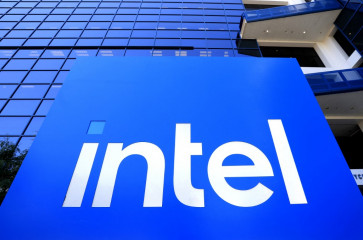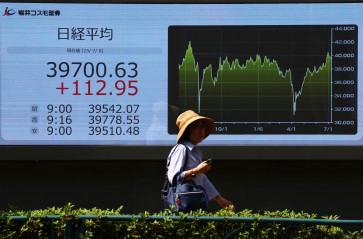Popular Reads
Top Results
Can't find what you're looking for?
View all search resultsPopular Reads
Top Results
Can't find what you're looking for?
View all search resultsBankers choked by new retail bonds
The Indonesian governmentâs move to sell bonds for retail consumers has made life harder for bankers collecting deposits in the already tight liquidity environment
Change text size
Gift Premium Articles
to Anyone
T
he Indonesian government's move to sell bonds for retail consumers has made life harder for bankers collecting deposits in the already tight liquidity environment.
Executives from some Indonesian banks have noticed changes in customers' preferences, saying they now choose to place their funds in retail bonds, which gives them more attractive returns compared to the time deposits offered by lenders.
The interest rate hikes performed by Bank Indonesia (BI) were initially expected to be followed by the increase of deposit rates, which could have consequently boosted the growth of third-party funds.
Instead, the banking sector saw a slowdown in deposit growth in the January-March period.
Third-party funds ' which include savings, time deposits and demand deposits (giro) ' only grew by 11.6 percent year-on-year to top Rp 3,618 trillion (US$306.72 billion) in the first quarter of this year, well below the 13.6 percent expansion in the previous quarter, according to data from the Financial Services Authority (OJK).
'According to our observations, it is very likely that the recent slowdown in growth for third-party funds was caused by the issuance of retail bonds,' said Pahala N. Mansury, the chief financial officer of Bank Mandiri, the country's largest bank by assets.
Banks' financial instruments are seen as less attractive compared to the new retail bonds. At the moment, most Indonesian banks offer time deposits with interest rates of around 8 percent annually.
Meanwhile, the government's latest retail bonds, the ORI010, offered a yield of 8.5 percent. The new retail bonds that were issued this year, the retail sukuk (Islamic bonds) and the retail saving bonds, both offered yield of 8.75 percent.
The saving bonds were also particularly attractive among customers due to their floating rate, which is 1.25 percent plus the benchmark interest rate of the Deposit Insurance Corporation (LPS), currently set at 7.5 percent.
'As the government bonds offer attractive returns with a near-zero risk of default, funds are now moving away from banks,' said Raden Pardede, a banking sector analyst with Creco Consulting.
'What happens now is a 'crowding-out effect' as the government moves to collect funds from the public, consequently worsening the liquidity problems already experienced by some of our banks,' he explained.
In Indonesia, liquidity in third-party funds is crucial as the country's banks remain heavily dependent on deposits to spur their lending business.
However, in recent years, local lenders have seen their deposits growth far lagging behind their credit growth, eventually causing a rise in loan-to-deposit ratios (LDR) in the industry, which is an indication of a tighter liquidity environment.
In the first quarter, total loans in Indonesia's banking sector grew by 19.6 percent year-on-year to top Rp 3,334 trillion, outpacing the deposits growth of 11.6 percent.
The combination of fast credit growth and lagging deposit growth has driven up the LDR in the banking sector to 91.1 percent, close to the BI safe level of 92 percent.
Not all bankers, however, blamed the retail bonds as the reason behind the tighter liquidity environment, including Bank Danamon chief financial officer Vera Eve Lim, who argued that the outstanding retail bonds were small compared to total deposits in the banking industry.
'There is yet to be a significant impact in the competition to collect third-party funds because of the difference of customers targeted by retail bonds and term deposits,' Bank CIMB Niaga chief financial officer Wan Razly Abdullah said separately.
'The latest retail bonds issuance of Rp 22 trillion, which comprises Rp 19.3 trillion of retail sukuk and
Rp 2.4 trillion of retail saving bonds, affect [deposit growth] more toward the high-end investors,' he noted.










